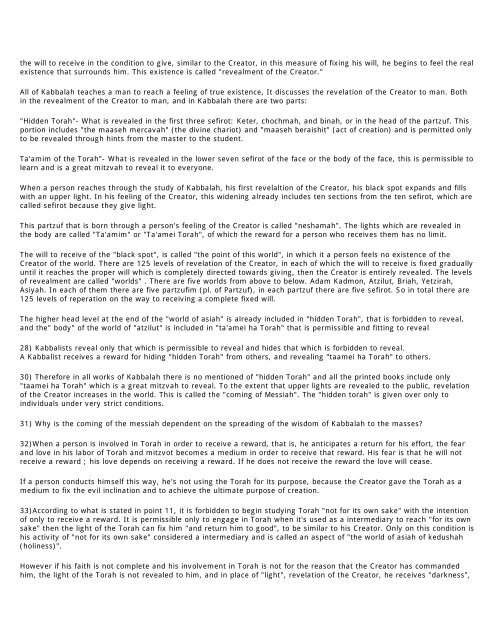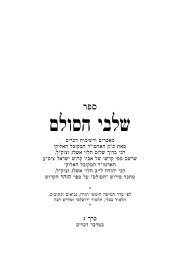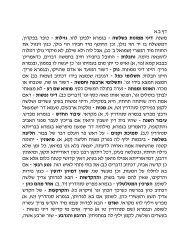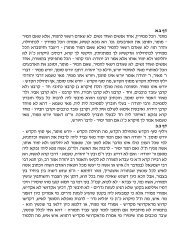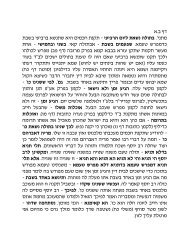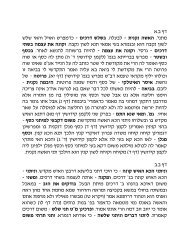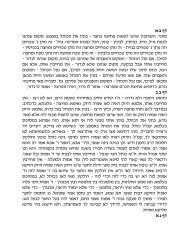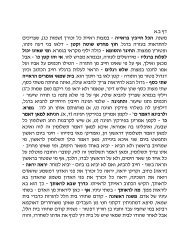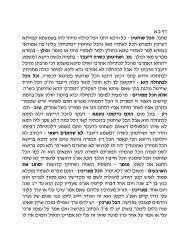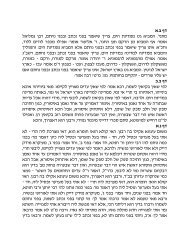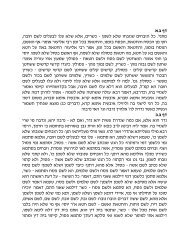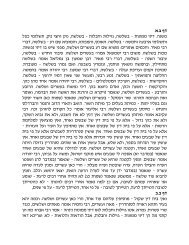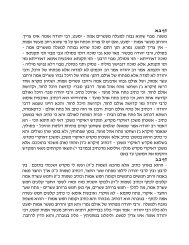Kabbalah World Center - "Breaking the Iron Wall"
Kabbalah World Center - "Breaking the Iron Wall"
Kabbalah World Center - "Breaking the Iron Wall"
Create successful ePaper yourself
Turn your PDF publications into a flip-book with our unique Google optimized e-Paper software.
<strong>the</strong> will to receive in <strong>the</strong> condition to give, similar to <strong>the</strong> Creator, in this measure of fixing his will, he begins to feel <strong>the</strong> real<br />
existence that surrounds him. This existence is called "revealment of <strong>the</strong> Creator."<br />
All of <strong>Kabbalah</strong> teaches a man to reach a feeling of true existence, It discusses <strong>the</strong> revelation of <strong>the</strong> Creator to man. Both<br />
in <strong>the</strong> revealment of <strong>the</strong> Creator to man, and in <strong>Kabbalah</strong> <strong>the</strong>re are two parts:<br />
"Hidden Torah"- What is revealed in <strong>the</strong> first three sefirot: Keter, chochmah, and binah, or in <strong>the</strong> head of <strong>the</strong> partzuf. This<br />
portion includes "<strong>the</strong> maaseh mercavah" (<strong>the</strong> divine chariot) and "maaseh beraishit" (act of creation) and is permitted only<br />
to be revealed through hints from <strong>the</strong> master to <strong>the</strong> student.<br />
Ta'amim of <strong>the</strong> Torah"- What is revealed in <strong>the</strong> lower seven sefirot of <strong>the</strong> face or <strong>the</strong> body of <strong>the</strong> face, this is permissible to<br />
learn and is a great mitzvah to reveal it to everyone.<br />
When a person reaches through <strong>the</strong> study of <strong>Kabbalah</strong>, his first revelaltion of <strong>the</strong> Creator, his black spot expands and fills<br />
with an upper light. In his feeling of <strong>the</strong> Creator, this widening already includes ten sections from <strong>the</strong> ten sefirot, which are<br />
called sefirot because <strong>the</strong>y give light.<br />
This partzuf that is born through a person's feeling of <strong>the</strong> Creator is called "neshamah". The lights which are revealed in<br />
<strong>the</strong> body are called "Ta'amim" or "Ta'amei Torah", of which <strong>the</strong> reward for a person who receives <strong>the</strong>m has no limit.<br />
The will to receive of <strong>the</strong> "black spot", is called "<strong>the</strong> point of this world", in which it a person feels no existence of <strong>the</strong><br />
Creator of <strong>the</strong> world. There are 125 levels of revelation of <strong>the</strong> Creator, in each of which <strong>the</strong> will to receive is fixed gradually<br />
until it reaches <strong>the</strong> proper will which is completely directed towards giving, <strong>the</strong>n <strong>the</strong> Creator is entirely revealed. The levels<br />
of revealment are called "worlds" . There are five worlds from above to below. Adam Kadmon, Atzilut, Briah, Yetzirah,<br />
Asiyah. In each of <strong>the</strong>m <strong>the</strong>re are five partzufim (pl. of Partzuf), in each partzuf <strong>the</strong>re are five sefirot. So in total <strong>the</strong>re are<br />
125 levels of reperation on <strong>the</strong> way to receiving a complete fixed will.<br />
The higher head level at <strong>the</strong> end of <strong>the</strong> "world of asiah" is already included in "hidden Torah", that is forbidden to reveal,<br />
and <strong>the</strong>" body" of <strong>the</strong> world of "atzilut" is included in "ta'amei ha Torah" that is permissible and fitting to reveal<br />
28) Kabbalists reveal only that which is permissible to reveal and hides that which is forbidden to reveal.<br />
A Kabbalist receives a reward for hiding "hidden Torah" from o<strong>the</strong>rs, and revealing "taamei ha Torah" to o<strong>the</strong>rs.<br />
30) Therefore in all works of <strong>Kabbalah</strong> <strong>the</strong>re is no mentioned of "hidden Torah" and all <strong>the</strong> printed books include only<br />
"taamei ha Torah" which is a great mitzvah to reveal. To <strong>the</strong> extent that upper lights are revealed to <strong>the</strong> public, revelation<br />
of <strong>the</strong> Creator increases in <strong>the</strong> world. This is called <strong>the</strong> "coming of Messiah". The "hidden torah" is given over only to<br />
individuals under very strict conditions.<br />
31) Why is <strong>the</strong> coming of <strong>the</strong> messiah dependent on <strong>the</strong> spreading of <strong>the</strong> wisdom of <strong>Kabbalah</strong> to <strong>the</strong> masses?<br />
32)When a person is involved in Torah in order to receive a reward, that is, he anticipates a return for his effort, <strong>the</strong> fear<br />
and love in his labor of Torah and mitzvot becomes a medium in order to receive that reward. His fear is that he will not<br />
receive a reward ; his love depends on receiving a reward. If he does not receive <strong>the</strong> reward <strong>the</strong> love will cease.<br />
If a person conducts himself this way, he's not using <strong>the</strong> Torah for its purpose, because <strong>the</strong> Creator gave <strong>the</strong> Torah as a<br />
medium to fix <strong>the</strong> evil inclination and to achieve <strong>the</strong> ultimate purpose of creation.<br />
33)According to what is stated in point 11, it is forbidden to begin studying Torah "not for its own sake" with <strong>the</strong> intention<br />
of only to receive a reward. It is permissible only to engage in Torah when it's used as a intermediary to reach "for its own<br />
sake" <strong>the</strong>n <strong>the</strong> light of <strong>the</strong> Torah can fix him "and return him to good", to be similar to his Creator. Only on this condition is<br />
his activity of "not for its own sake" considered a intermediary and is called an aspect of "<strong>the</strong> world of asiah of kedushah<br />
(holiness)".<br />
However if his faith is not complete and his involvement in Torah is not for <strong>the</strong> reason that <strong>the</strong> Creator has commanded<br />
him, <strong>the</strong> light of <strong>the</strong> Torah is not revealed to him, and in place of "light", revelation of <strong>the</strong> Creator, he receives "darkness",


